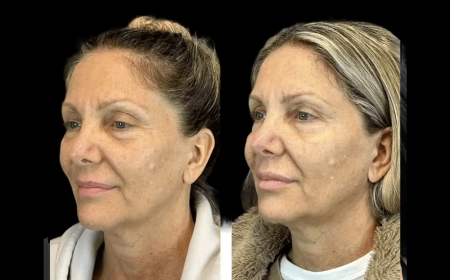HIV and Hepatitis Testing Market: Strengthening Global Health Through Early Detection and Diagnostic Innovation
During the forecast period of 2025 to 2032 the market is likely to grow at a CAGR of 7.40%, primarily driven by the rising disease prevalence, increased awareness, and advancements in diagnostic technologies

Introduction
HIV and hepatitis testing encompasses a range of diagnostic tools used to detect viral infections such as HIV-1, HIV-2, hepatitis B (HBV), and hepatitis C (HCV). These tests are critical for early diagnosis, treatment planning, and public health surveillance. With rising disease prevalence, expanding screening programs, and technological advancements, the market is witnessing sustained growth across clinical, homecare, and mobile settings.
Market Overview
The global HIV and hepatitis testing market was valued at approximately USD 5.61 billion in 2024 and is projected to reach USD 9.93 billion by 2032, growing at a CAGR of 7.40%.
-
North America dominates due to advanced healthcare infrastructure and high testing penetration
-
Asia-Pacific shows strong growth, driven by government-led screening initiatives and mobile diagnostics
-
Europe benefits from regulatory support and integrated public health programs
Market Segmentation
By Disease Type
-
HIV-1 and HIV-2
-
Hepatitis B (HBV)
-
Hepatitis C (HCV)
-
Other hepatitis strains (A, D, E)
By Test Type
-
Enzyme-linked Immunosorbent Assay (ELISA)
-
Rapid Diagnostic Tests (RDT)
-
Polymerase Chain Reaction (PCR)
-
Isothermal Nucleic Acid Amplification Technology (INAAT)
-
Multiplex and other technologies
By End User
-
Hospitals & Diagnostic Laboratories
-
Clinics
-
Blood Banks
-
Homecare Settings
-
Mobile Testing Units
By Region
-
North America (U.S., Canada, Mexico)
-
Europe (Germany, U.K., France, Italy, Spain, etc.)
-
Asia-Pacific (China, India, Japan, South Korea, etc.)
-
Latin America
-
Middle East & Africa
Key Trends
-
Rapid Point-of-Care Testing: RDTs and mobile diagnostics enable faster results and broader access
-
At-Home and Self-Testing Kits: Digital platforms and AI-integrated apps support remote testing and counseling
-
Multiplex Assays: Simultaneous detection of HIV and hepatitis improves efficiency and cost-effectiveness
-
AI and Automation: Enhances throughput, accuracy, and clinical decision-making in high-volume labs
-
Global Screening Campaigns: WHO, UNAIDS, and national programs drive mass testing and awareness
Challenges
-
Access Disparities: Limited infrastructure and reimbursement in low-resource settings
-
Stigma and Awareness Gaps: Social barriers hinder early testing and treatment
-
Regulatory Fragmentation: Diverse standards complicate product approvals and market entry
-
Supply Chain Disruptions: Geopolitical tensions and raw material shortages affect test kit availability
Growth Drivers
-
Rising Disease Burden: Over 39 million people living with HIV and 354 million with chronic hepatitis B or C globally
-
Government-Led Screening Initiatives: Programs like the U.S. Ending the HIV Epidemic and Indias NVHCP boost testing volumes
-
Technological Advancements: AI, biosensors, and mobile diagnostics improve reach and accuracy
-
International Funding: Support from WHO, Global Fund, and Gavi accelerates testing infrastructure in LMICs
-
Decentralized Testing Models: Mobile clinics, pharmacy networks, and community outreach expand access
Other Trending Reports
https://www.databridgemarketresearch.com/reports/global-pulmonary-function-testing-market
https://www.databridgemarketresearch.com/reports/global-seaweed-in-dietary-supplement-market
https://www.databridgemarketresearch.com/reports/global-shared-mobility-market
https://www.databridgemarketresearch.com/reports/global-smart-aquaculture-market
https://www.databridgemarketresearch.com/reports/us-beverage-coolers-market
https://www.databridgemarketresearch.com/reports/global-appetite-stimulant-market
https://www.databridgemarketresearch.com/reports/global-automotive-battery-market
https://www.databridgemarketresearch.com/reports/global-beverage-coolers-market








































